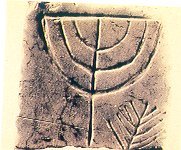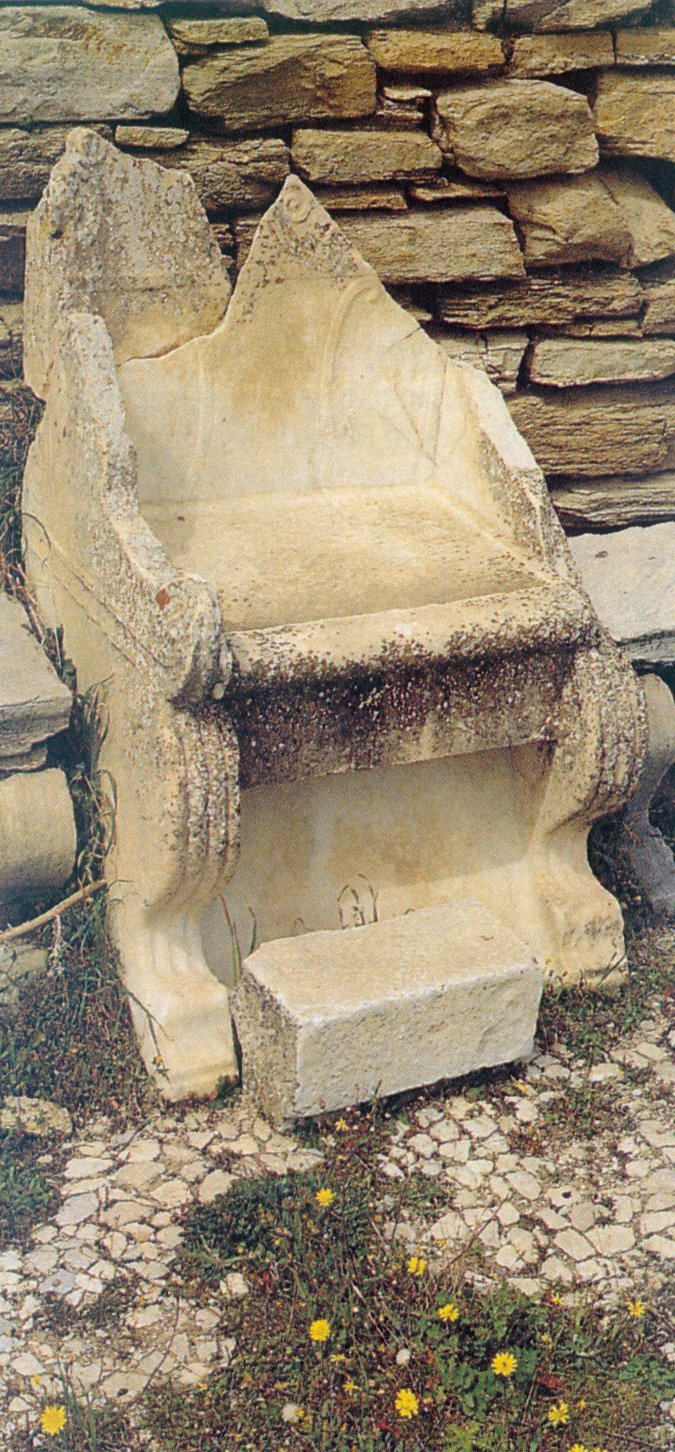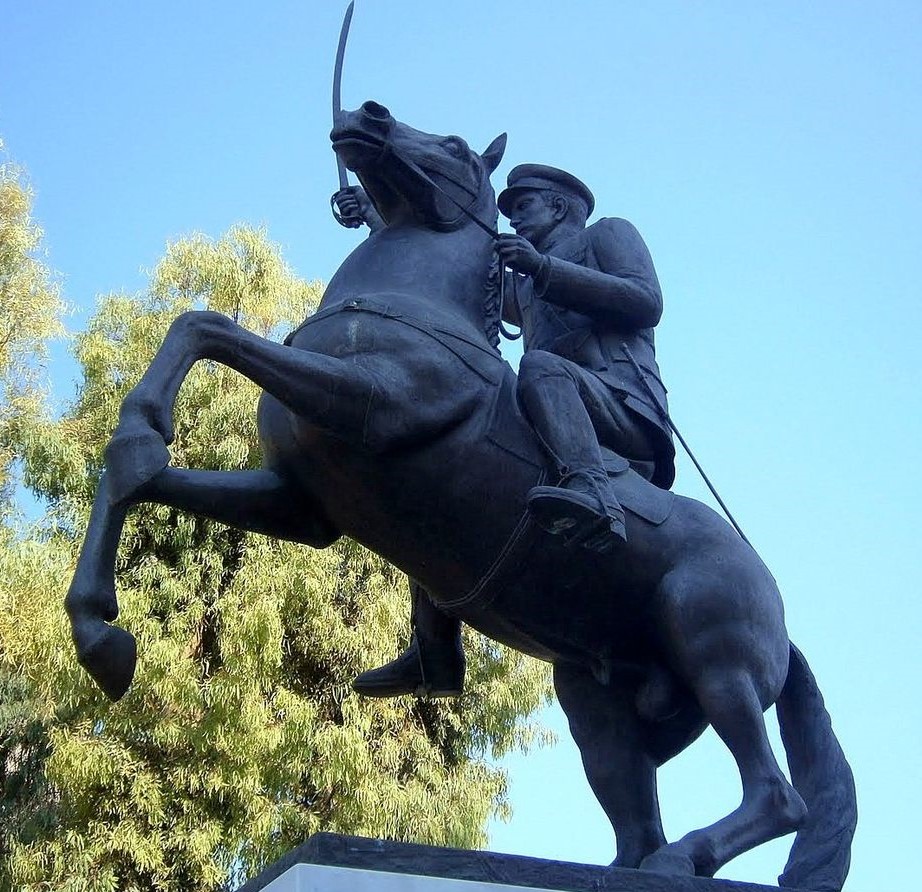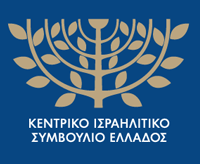CENTRAL BOARD OF JEWISH COMMUNITIES IN GREECE
The official coordinating body of Greek Jewry is the Central Board of Jewish Communities in Greece (K.I.S.).
The K.I.S. was established by law in 1945, after the end of the Second World War, with the aim of reconstructing the Jewish communities of Greece destroyed by the Nazis.
It is a Legal Body under State Law and is under the Ministry of Education & Religious Affairs. Its work focuses on the coordination of the activities of the Jewish Communities and organizations in Greece, the preservation of Jewish cultural heritage and history, as well as the fight against anti-Semitism. At the same time, the KIS is also the official representative body of Jewish Communities and Organizations in Greece and abroad.
The Jews of Greece
A brief history of the Jewish Communities in Greece
 The first evidence of Jewish settlement in Greece is found in an inscription of the 3rd BC. century that speaks of a certain Jew from Boeotia, named Moschos Moschionos. The inscription was found in Oropos and dates between 300-250 BC.
The first evidence of Jewish settlement in Greece is found in an inscription of the 3rd BC. century that speaks of a certain Jew from Boeotia, named Moschos Moschionos. The inscription was found in Oropos and dates between 300-250 BC.
It seems that these first Jews, or at least some of them, were slaves sold in Greece by the neighboring peoples, enemies - conquerors of Judea, from which they first arrived in Greece via Cyprus, Ionia and the Aegean islands. Among these Jews it is mentioned that he came to Sparta, at the time of Antiochus Epiphanes, and the high priest Jason III.
In the book of the Maccabees (Macca 15' 23:142), a list of Jewish Communities settled in the most important centers of Greece is given. This list of cities, which dates from XNUMX BC, as well as another similar one drawn up by the historian Philo the Judaeus, mentions the existence of Jews in Sparta, Delos, Sikyon, Samos, Kos, Crete, Thessaly, Boeotia, Macedonia, Aetolia, Attica, Argos, Corinth, as well as in Cyprus.
 In 1st BC century, there was a Jewish presence in Delos as well, as evidenced by the ruins of an ancient Synagogue and the multitude of Jewish inscriptions found in the area. Of interest is the Jewish element in Rhodes, with whom King Herod of Judea maintained friendly relations. The Jews of Crete are also mentioned by Flavius Josephus.
In 1st BC century, there was a Jewish presence in Delos as well, as evidenced by the ruins of an ancient Synagogue and the multitude of Jewish inscriptions found in the area. Of interest is the Jewish element in Rhodes, with whom King Herod of Judea maintained friendly relations. The Jews of Crete are also mentioned by Flavius Josephus.
According to 12th century AD, the well-known Jewish traveler Benjamin of Tudela reported meeting Jews in Corfu, Arta, Patras, Nafpaktos, Corinth, Thebes, Chalkida, Thessaloniki, Drama, and elsewhere. Jews also lived on the islands of Lesbos, Chios, Samos, Rhodes and Cyprus. The largest Israelite community he visited was that of Thebes, which numbered 2.000 members, while only 500 Jews lived in Thessaloniki at the time. In the rest of the cities their number varied between 20 and 400. Their main occupations were dyeing, weaving and silk-making.
From the end 14 century, Jewish refugees from Spain and Portugal settled on the Greek peninsula and neighboring islands. Mainly in Thessaloniki but also in cities like Trikala, Larissa and Volos, the Jews known as Sephardim introduced their language (Hebrew-Spanish) and their own customs and manners.
During the 14th century, a large number of Jews from Hungary, after the occupation of this country by the Turks, during the reign of Sultan Murat, settled in Kavala and Sidirokastro. A second exodus of Hungarian Jews followed in 1546, the period of Suleiman the Magnificent.
Another mass influx of Jews into Greece, this time in Corfu, was caused by the expulsion of the Italian-speaking Jews of Apulia in southern Italy.
By 16th to 18th century, the Jewish Community of Thessaloniki was one of the largest in the world. After the conquest of Rhodes by the Turks, in 1552, several Jews from Thessaloniki settled on the island. In Crete, Jews played an important role in transit trade. Megalonisos was also famous for the wisdom of its Rabbis and Jewish scholars.
The 20th century - Pre-war
At the beginning of the 20th century, there were approximately 10.000 Jews living in Greece. After the Balkan wars (1912-13) and the liberation of Northern Greece, Epirus, Chios and Crete (1908), the number of Jews reached approximately 100.000.
 In 1940, when the Italians and Germans attacked Greece, 12.898 Jews fought in the ranks of the Greek Army. Of these, 343 held the rank of officer or non-commissioned officer. Among the brave warriors of the Albanian front were colonel Mordecai Frizis, from Chalkida, who lost his life heroically in the battle of Kalamas, officer Jean Allaluf from Thessaloniki, major Salvatore Sarfatis from Athens, officers Joseph Varuch from Corfu and Leon Dostis from Ioannina and many others.
In 1940, when the Italians and Germans attacked Greece, 12.898 Jews fought in the ranks of the Greek Army. Of these, 343 held the rank of officer or non-commissioned officer. Among the brave warriors of the Albanian front were colonel Mordecai Frizis, from Chalkida, who lost his life heroically in the battle of Kalamas, officer Jean Allaluf from Thessaloniki, major Salvatore Sarfatis from Athens, officers Joseph Varuch from Corfu and Leon Dostis from Ioannina and many others.
Before the war, Jewish Communities operated in 28 cities across Greece (Didymoteicho, Nea Orestiada - Soufli, Alexandroupolis, Komotini, Xanthi, Kavala, Drama, Serres, Thessaloniki, Veria, Kastoria, Florina, Trikala, Larissa, Volos, Chalkida, Athens, Patras , Agrinio, Ioannina, Preveza, Arta, Corfu, Zakynthos, Chania, Rhodes and Kos), with a total Jewish population of 77.377.
Period of World War II German Occupation
During World War II, when Greece was occupied by the German Nazis, 86% of Greek Jews lost their lives as a result of Nazi actions, transportation to camps, extermination and executions. In many cities, where there were flourishing Jewish Communities, after the Holocaust, only a few people survived.
A monumental text, for the support of the Jews of Greece, unique in the annals of the entire occupied Europe, was the proud response of the then Archbishop of Athens Damascenos to the dosiligo Prime Minister Konstantinos Logothetopoulos and the Nazi general Stroop, who threatened Archbishop Damascenos with a rifle. , because of his harsh written protest against the persecution of the Israelites in Greece.
This letter was written in a very strict style and referred to the strong ties that unite the Greek Orthodox with the Greek Jews as joint citizens of Greece in political rights, but mainly in mind and soul. The letter was a monument of courage, national dignity and respect for human ideals and expressed the views of the then necessarily silenced Greek people.
This letter was signed by 29 institutions and organizations representing the whole of intellectual and professional Greece. At the same time, the Archbishop urged Greek Christians and monasteries to grant asylum to Jewish families in order to avoid displacement.
During the Occupation many Jews took part in the National Resistance and their contribution was recognized by the State and the Resistance Organizations with the awarding of honorary titles
Participation in Greek Life
The Jews of Greece have participated and are actively participating in the social, economic and cultural life of the country. Before the war, their representatives were elected in the Parliament and the Senate. Greek Jews distinguished themselves in the building of the Greek economy, in the sciences, in letters and in the arts.
Today
Today the Jews of Greece are active in the private sector in the sciences, arts, letters and in public administration. They number approximately 5.500 people and are organized into 8 Jewish Communities operating in Athens, Thessaloniki, Larissa, Volos, Chalkida, Ioannina, Trikala and Corfu. A few Jews also live in the dormant Communities of Rhodes and Karditsa.

